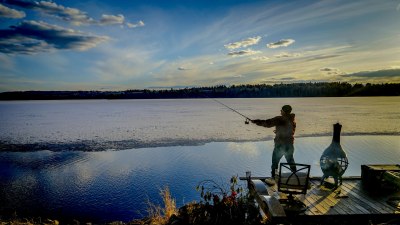Slow Travel for Fast Lives
Discover how slow travel can rejuvenate and enrich your fast-paced lifestyle.

This image was created with the assistance of Freepik
In today's fast-paced world, where everything is available at the click of a button, the concept of slow travel is gaining traction. As our lives become increasingly hectic, filled with endless tasks and crowded schedules, many are seeking refuge in a travel style that prioritizes experience over speed.
What is Slow Travel?
Slow travel is a philosophy that emphasizes immersive, meaningful experiences while traveling. Unlike traditional travel that focuses on ticking off attractions and maximizing sightseeing in minimal time, slow travel encourages individuals to explore and connect with their destinations on a deeper level. The intention is to savor the journey, allowing travelers to fully engage with local cultures, people, and environments while minimizing their impact on these areas.
The Importance of Slow Travel
As our lives become more frantic, the need for a therapeutic escape grows. Fast travel often results in exhausted travelers who return home feeling more drained than rejuvenated. Slow travel offers an antidote: it creates resilience by fostering relaxation, reflection, and connection. This approach allows individuals to recharge and restore balance in their lives, fostering a more profound sense of well-being.
How to Embrace Slow Travel
1. Plan Longer Trips: Allocate more time for your travels. Instead of a weekend getaway packed with tours, consider a two-week journey where you can stay in one or two places. This allows you time to explore at your leisure and dig deeper into local experiences.
2. Limit Destinations: Instead of attempting to visit numerous destinations in a single trip, choose fewer places to explore more thoroughly. It’s about quality over quantity. Spend a few days in a charming town or a bustling city; this gives you more opportunities to interact with local residents, sample the cuisine, and discover hidden gems.
3. Prioritize Experiences Over Landmarks: Engage in activities that immerse you in the local culture, such as attending a cooking class in Italy, hiking in the mountains of Peru, or volunteering in a local community project. This creates lasting memories and allows authentic interactions.
4. Use Alternative Modes of Transportation: Instead of hopping on a train or a plane every couple of hours, consider walking, cycling, or using public transportation. Not only will you get a better sense of the place you are in, but you will also move at a pace that encourages exploration and discovery.
5. Stay in Local Accommodations: Choose homestays, bed and breakfasts, or eco-lodges that embody the culture. These types of accommodations often offer a more authentic experience compared to traditional hotels. Plus, you may receive tips and personal stories from hosts, which can enrich your understanding of the destination.
Benefits of Slow Travel
1. Deeper Connections: Slow travel allows for meaningful connections with locals and fellow travelers. These relationships can lead to transformative experiences that are often missed in a rush.
2. Sustainable Practices: By spending more time in fewer areas, slow travel promotes sustainable tourism practices. It encourages travelers to support local businesses and contribute positively to communities.
3. Enhanced Awareness: Traveling slowly cultivates mindfulness. It encourages travelers to be present and aware of their surroundings, allowing them to appreciate and enjoy the subtleties of different cultures and landscapes.
4. Personal Growth: Embracing new experiences through slow travel can promote personal growth. It can challenge your comfort zone, foster creativity, and establish new perspectives.
Challenges of Slow Travel
1. Time Constraints: For those with hectic work schedules or family commitments, the notion of slow travel may seem impractical. However, even small changes, like taking a longer weekend trip, can still embody the spirit of slowing down.
2. Pace Adjustment: If you are used to a fast travel style, transitioning can be difficult. You may feel time slipping away, but embracing the journey as an opportunity for personal growth can help reshape this mindset.
3. Planning: Slow travel requires thoughtful planning. It’s vital to research destinations that align with your intent to immerse yourself in the local culture, as well as transportation options and accommodation types that support your slower pace.
Real-Life Slow Travel Examples
Many travelers have adopted slow travel and shared their experiences. A couple traveling through Southeast Asia decided to stay in one town for several weeks, engaging in community workshops and volunteering at a local orphanage. They often recount how this experience not only changed their perspectives but also built lasting friendships.
Another story involves a solo traveler who opted for a month-long journey through Italy. Instead of rushing to see Rome, Florence, and Venice in a week, they chose to immerse themselves in a single town, learning the language, cooking with locals, and enjoying leisurely strolls through the countryside. This experience became a highlight of their life, with memories that will last forever.
Tips for Incorporating Slow Travel into Your Lifestyle
1. Take Short Breaks: Even if you can't commit to a long vacation, think about short getaways that enable you to slow down. Try weekend retreats in nature, camping trips, or stays at wellness resorts where you can unplug and recharge.
2. Local Exploration: Explore your local area as if you were a tourist. Visit a nearby town you’ve never explored, try new restaurants, or discover local events that celebrate your community. This can be an excellent way to experience the essence of slow travel without going far.
3. Mindful Commuting: Use your daily commute as an opportunity to slow down. Instead of rushing through traffic or zoning out on your device, try walking or cycling to work, or simply enjoy the scenery on public transport.
4. Practice Meditation and Mindfulness: Incorporate practices of meditation and mindfulness into your daily routine. The goal is to develop an awareness of your surroundings and engage more fully in each moment.
5. Create a Connection Routine: Forge connections through experiences at home, such as hosting dinners with neighbors, being part of community gardening projects, or joining local groups with shared interests. It’s all part of adopting the slow lifestyle.
In conclusion, slow travel is more than just a travel style; it’s a philosophy that has the potential to transform your life. By crafting deeper connections, embracing local cultures, and allowing time for personal reflection, slow travel becomes a powerful tool to rejuvenate your soul amidst the chaos of the fast-paced world. So the next time you're planning a trip, consider slowing down and deepening your travel experience.











